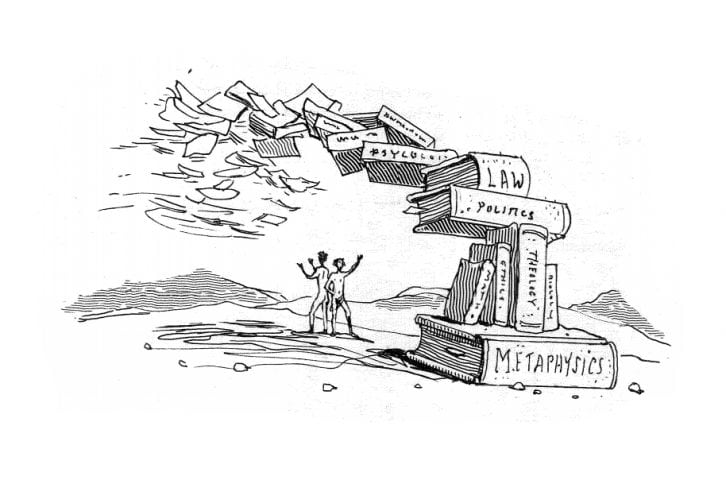Books Reviewed
A review of a Ronald Reagan: The Power of Conviction and the Success of His Presidency , by Peter J. Wallison
, by Peter J. Wallison
One of the most perplexing questions for students of politics, particularly on the Left, is how a man with such well-known "cognitive limitations" as Ronald Reagan, the doddering old actor, could have been so successful. That Reagan was hostile to big government's machinations, that he stubbornly stuck with his principles despite often daunting opposition and yet succeeded confounds his ideological opposites.
When Reagan arrived in the White House he had been hard at work studying and speaking out on vital issues—human liberty and the form of government conducive to it—for almost 40 years. Throughout his public life Reagan advocated a core set of beliefs. As President, Reagan enunciated his principles and expected subordinates to turn them into policy.
Yet despite Reagan's consistent record of success a book like Peter Wallison's is still necessary to explain just what happened and why. Wallison served as White House counsel from 1986 to 1987, observing Reagan closely during some of his greatest triumphs and, more particularly, during Reagan's greatest political crisis, the Iran- Contra affair which occupies nearly half the book. A converted Rockefeller Republican, Wallison convincingly asserts that Reagan had little patience for the bureaucratic micromanagement that consumes intellectuals and that political scientist Richard Neustadt asserts is a requirement for presidential success. It is this characteristic that the Left has taken as evidence of incompetence, but which Wallison rightly attributes to an effective and realistic management style.
Reagan thought that he led best by clearly and consistently enunciating his principles. Subordinates should then well know what initiatives Reagan would support. Essential to such a management style's success are trustworthy and disciplined subordinates. But it is also this style, according to Wallison, that produced the Iran- Contra affair. Wallison provides a compelling inside history of the matter. He doesn't spare darlings of the Right Oliver North and John Poindexter, who he believes acted outside their authority and with wanton disregard for the president's well-being.
It was Reagan's belief in the initial idea of an opening to Iran that Wallison believes made him unable to quickly admit to the American people that "mistakes were made." True to his original convictions Reagan ultimately admitted only to failures in execution.
What becomes clear about Reagan in Wallison's account of the Iran-Contra affair is that he was unswerving in his convictions. Reagan never believed that Iran-Contra was as significant as the noise surrounding it would have suggested, and he was ultimately right. But this was not because Reagan was politically insensitive—even his detractors compliment his innate political instincts—but because he believed in the power of the truth and in his own integrity
Wallison ultimately argues that Reagan's devotion to principle and intentional detachment from the details of government was both his basic strength and his ultimate weakness. But the history he recounts undermines this conclusion. It was in fact Reagan's steadfast devotion to his principles that allowed him to see past the immediate crisis and go on to some of his greatest successes.



